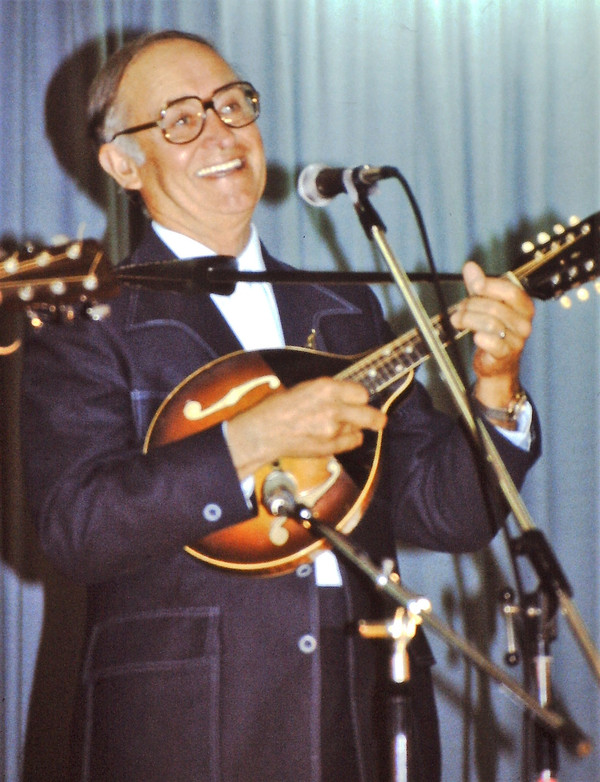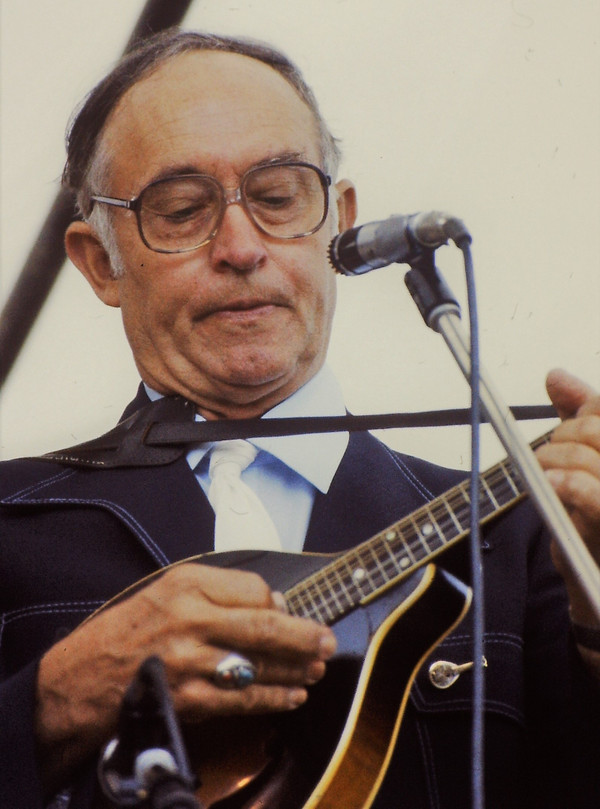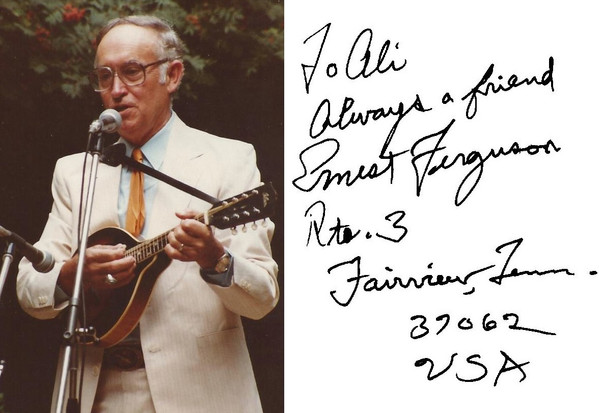Ernest Ferguson
Настоящее имя: Ernest Ferguson
Об исполнителе:
Born in Bon Aqua, (about 35 miles west of Nashville) Tennessee, on July 16, 1918, Ferguson is generally remembered as one of the best country music mandolin players of the 1940s. He moved into the city in the mid-1930s where he became acquainted with the Anglin Brothers, who were then beginning their radio career at WSIX. Jack Anglin encouraged Ferguson to stick with playing the mandolin – guitar players were ten a penny. Following Anglin’s advice, Ferguson began playing on a Saturday show at WSIX, where he made the acquaintance of Johnnie Wright, forming what later became known as the Tennessee Mountain Boys, Johnnie & Jack (Anglin). Paul Warren, Emory Martin and Ferguson worked at WSIX through the remainder of 1940. During 1941 and 1942 they moved in turn to WBIG Greensboro, North Carolina; to WCHS Charleston, and WHIS Bluefield, both in West Virginia. Ferguson spent most of 1943 working in a defense plant in Charleston, but then in January 1944, Ernest re-joined Wright’s group at WNOX Knoxville. Ferguson remained in Knoxville for several months playing with Wright and his new partner, Eddie Hill. That September, he went to WSM and joined forces with the Bailes Brothers, newly arrived at the Grand Ole Opry. He remained with them during their entire spell at WSM. Also, he recorded with them for Columbia and King, providing most of the instrumental leads on each of their sides. He recorded 52 songs with them including the original and classic Dust on the Bible. His mandolin stylings contributed to the Bailes Brothers unique sound. Other songs that he recorded with the Bailes Brothers included I Want to Be Loved (But Only By You), I’ve Got My One Way Ticket to the Sky and Give Mother My Crown (also recorded by Flatt & Scruggs), as well as the World War II classics Searching for a Soldier’s Grave and Down Where the River Bends (recorded by Ralph Stanley). When they left Nashville at the end of 1946, Ferguson remained and started his own booking agency. That said, he did make himself available in 1947 to record two further sessions with the Bailes Brothers. When Johnnie & Jack came to WSM and needed a mandolin player, Ferguson worked with them on radio but did not go out on the road, except for the week that they went to Ohio, and provided instrumental leads on the recordings, in August 1947, by the King Sacred Quartet, a superb Gospel group consisting of Johnnie & Jack, Clyde Moody and Raymond ‘Duck’ Atkins. In May 1948, he aspired to get back into music full-time and re-joined the Bailes Brothers who, at the time, were on the Louisiana Hayride in Shreveport, replacing Clyde Baum, who, ironically, went to work with Johnnie & Jack. Ferguson then worked with the Bailes’s West Virginia Home Folk until their breakup, at which time (in the in the early 1950s) he went to Washington, D.C. to join Grandpa Jones, with whom he recorded two sessions for King Records. He worked with a young Roy Clark to play the Washington D.C. area and the north-eastern US country music circuit also. In the fall of 1950, Ferguson went to work as a drywall finisher but continued as a part time musician for the next several years as part of the Washington based Blue River Boys (Blue Mountain Boys). Ferguson eventually returned to Tennessee, settling in the town of Fairview, where he continued to work in the drywall trade. Although out of music for some 20 years, he got back in again after meeting Walter and Kyle Bailes. Thereafter, he worked many weekend dates with the Bailes Brothers and recorded again, with the duo on their Reunion album and with Walter alone. Ferguson played on numerous albums with other artists. He toured Holland twice with the Bailes Brothers and a young Leroy Troy. He enjoyed playing music with his numerous local picking pals that he met throughout the years. In the autumn of 1977, Ferguson cut a solo album, a selection of mandolin instrumentals, for Old Homestead Records. A modest gentleman, who can also sing most vocal parts when needed, Ferguson is truly one of the unsung musical heroes of his generation. His talents included an ability to play comedy, which he presented in the guise of a character he called Abner Abernacky.



